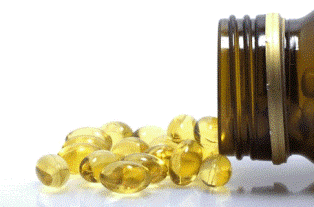August 21st, 2010 by JenniferKearneyStrouse in Better Health Network, Health Tips, News, Research
No Comments »

 A new study in the American Journal of Obstetrics & Gynecology reports that low levels of vitamin D may be linked to early-onset preeclampsia in pregnant women.
A new study in the American Journal of Obstetrics & Gynecology reports that low levels of vitamin D may be linked to early-onset preeclampsia in pregnant women.
The trial found that the average vitamin D level in 50 pregnant women with preeclampsia was 18 ng/mL, compared with 32 ng/mL in 100 women with healthy pregnancies. No casual relationship was proven, and the study’s lead author told Reuters Health that the recommended vitamin D intake in pregnant women hasn’t changed, but the study results raise yet more questions about this much-discussed nutrient.
ACP Internist covered the pros and cons of vitamin D in its November 2009 issue. (Reuters, ACP Internist)
*This blog post was originally published at ACP Internist*
July 15th, 2010 by JenniferKearneyStrouse in Better Health Network, Health Tips, News, Research
No Comments »

Data presented at the International Conference on Alzheimer’s Disease in Honolulu this week indicated that exercise and adequate vitamin D levels could help reduce risk for the disorder. Framingham Heart Study researchers found that risk for dementia was halved in “moderate to heavy exercisers” compared with more sedentary people, while researchers on a separate study found that vitamin D deficiency can greatly increase risk for mental impairment.
Another study found that injecting the compound florbetapir into the brain of patients with dementia and then performing a PET scan could help pinpoint the size and location of plaques.
Researchers also reported that tea consumption was linked to a slower rate of cognitive decline in older adults without cognitive impairment, but there was no dose response and more studies will need to be done to determine a definitive link. (CBS News, Wall Street Journal, Medscape)
*This blog post was originally published at ACP Internist*
May 25th, 2010 by Davis Liu, M.D. in Better Health Network, Health Policy, Health Tips, Opinion, Quackery Exposed, Research
12 Comments »

A patient brought in a flyer for Life Line Screening, where for $129 an individual can have their carotid (neck) and peripheral (leg) arteries screened for blockage, their abdominal aorta screened for aneurysm (swelling), and be tested for osteoporosis. The advertisement claims that “we can help you avoid a stroke,” and their logo notes “Life Line Screening: The Power of Prevention.”
Are these tests worth your money? Short answer: No.
Although the flyer correctly indicates that 80 percent of stokes can be prevented, the National Stroke Assocation does not recommend ultrasound as a screening test. Preventing stroke includes quitting smoking, knowing your blood pressure and cholesterol numbers, drinking alcohol in moderation (if already doing so), exercising regularly, and eating a low-sodium diet. Their is no mention of an ultrasound test. Why? Because there is NO evidence that it helps save lives in individuals who are healthy and have no symptoms (except for the following situations). Read more »
*This blog post was originally published at Saving Money and Surviving the Healthcare Crisis*
May 1st, 2010 by DaveMunger in Better Health Network, Health Tips, Research, True Stories
1 Comment »


This week I’ve been trying to eat according to the DASH guidelines for lowering blood pressure. It actually hasn’t been too difficult — partly because I’m not following their strictest guidelines, which call for just 1,300 milligrams of sodium and 16 grams of saturated fat a day. I’ve been shooting for 2,300 milligrams of sodium and 22 grams of saturated fat.
In 2003, I tried a somewhat different “diet,” which in some ways was more difficult to follow, even though it only lasted one day. My son Jim (then age 11) and I ate every meal at McDonald’s for an entire day (yes, this was before Super Size Me). We recorded the experience on the Web. I thought it would be interesting to compare my day at McDonald’s to a typical day on DASH. Read more »
*This blog post was originally published at The Daily Monthly*
February 8th, 2010 by Davis Liu, M.D. in Better Health Network, Health Tips
1 Comment »

Some patients love their vitamins, spending hundreds to thousands of dollars annually. At times, they will even forgo proven medical therapy. As more Americans go without health insurance coverage while others face higher office visits and copays, increasing numbers of patients are seeking alternative, natural therapies instead of medical care. Are vitamins really the scientific breakthrough and secret that doctors refuse to recommend or are they simply marketing hype? As any medical school student will tell you, the correct answer to any question is: it depends.
For certain groups, pregnant women, patients with macular degeneration, and vegetarians, vitamins and minerals may be recommended as research finds them helpful. Prenatal vitamins have more folic acid which has been found to decrease the risk of neural tube defects in the fetus. Vegetarians may need to supplement their diet with vitamin B12, iron, and vitamin D, which are absent in their food choices. Read more »
*This blog post was originally published at Saving Money and Surviving the Healthcare Crisis*
 A new study in the American Journal of Obstetrics & Gynecology reports that low levels of vitamin D may be linked to early-onset preeclampsia in pregnant women.
A new study in the American Journal of Obstetrics & Gynecology reports that low levels of vitamin D may be linked to early-onset preeclampsia in pregnant women.













